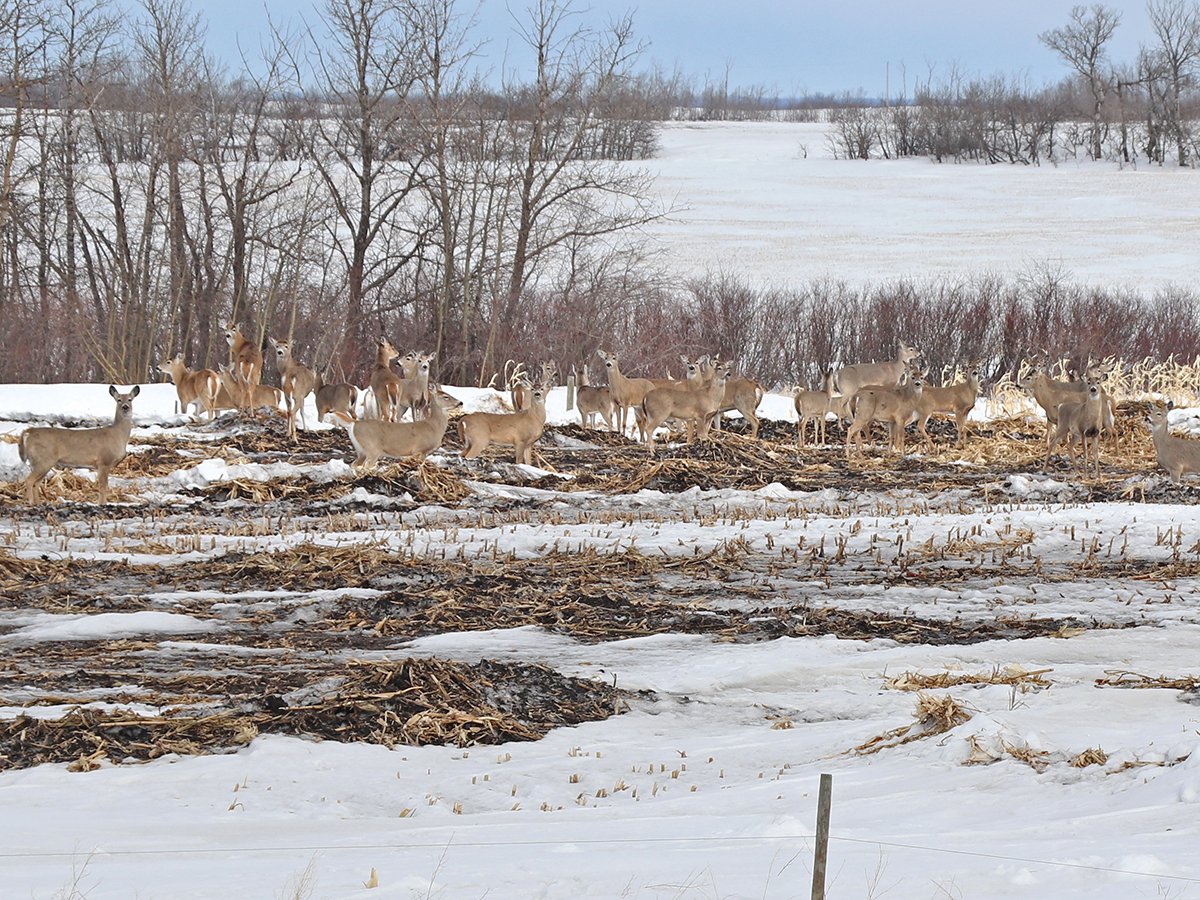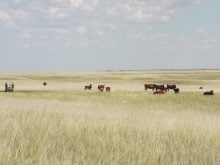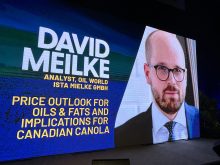EDMONTON — As the United Kingdom negotiates to leave the European Union, uncertainty is a new reality for farmers.
“We are not quite sure how policy is going to work,” said Judith Bryans, executive director of Dairy U.K.
“The (European Union) position is not willing to discuss anything on trade until certain aspects of the divorce are set out,” she said at the Dairy Farmers of Canada annual meeting held in Edmonton July 18-19.
Representing 85 percent of the British dairy sector, some members see the split as a major import opportunity while others see a chance to export more. What they don’t want is a jagged split that leaves them in worse shape.
Read Also

Foot-and-mouth disease planning must account for wildlife
Our country’s classification as FMD-free by the World Organization for Animal Health has significant and important implications for accessing foreign markets.
“Nobody wanted to see an introduction of additional red tape, administrative burden. Nobody wanted to see tariffs coming in or the creation of non-tariff barriers by suddenly changing regulations,” she said.
A looming problem is the potential loss of labour.
“There is almost full employment in the U.K. and people do not see farming or processing as attractive work. A lot of our industry needs European labour,” she said.
“It is not about cheap labour. You can’t get people in the U.K. to take the jobs,” she said.
Border issues have also raised question.
Processing plants, farmers, workers and milk easily cross borders between Northern Ireland, Republic of Ireland, England, Scotland and Wales.
Farmers and distributors move back and forth or people may live in one country and work in another. The U.K. wants a common travel area and a frictionless border with Ireland, but that may not be possible.
Future agriculture policy and subsidies are also uncertain. Before the election and the vote for Brexit, farmers were told they would be guaranteed subsidy payments until 2020. But once out of the European Union, it may take Britain until 2025 to sort out an agriculture deal.
Since the U.K. election that left the government in a minority, a ministry to plan for Britain’s leaving the EU has been formed and it works with other departments.
However, agriculture and food have no prominence, she said.
Top, medium and low priorities for the government Brexit strategy were recently leaked to the media.
“Agriculture was not in any one of them. We know we have a big deal on our hands. Therefore, we have to be given provenance,” Bryans said.
The dairy sector wants to be involved in future decisions.
“The reality is the U.K. has a very large dairy deficit and we are one of the largest importers of product in the world. A bad deal for the U.K. is a major problem for the domestic dairy industry,” she said.
Most imports come from the EU with a large share from Ireland.
However, Britain is also a big exporter and could become a major worldwide dairy exporter.
Last year, the industry reported $14.35 billion in sales and employ 73,000 people in farming and processing.
The 13,000 dairy farmers have an average 153 cows producing more than 14 billion litres of milk annually.
Most farmers hold contracts with private and farmer owned co-operatives. A smaller number have contracts with retailers.















